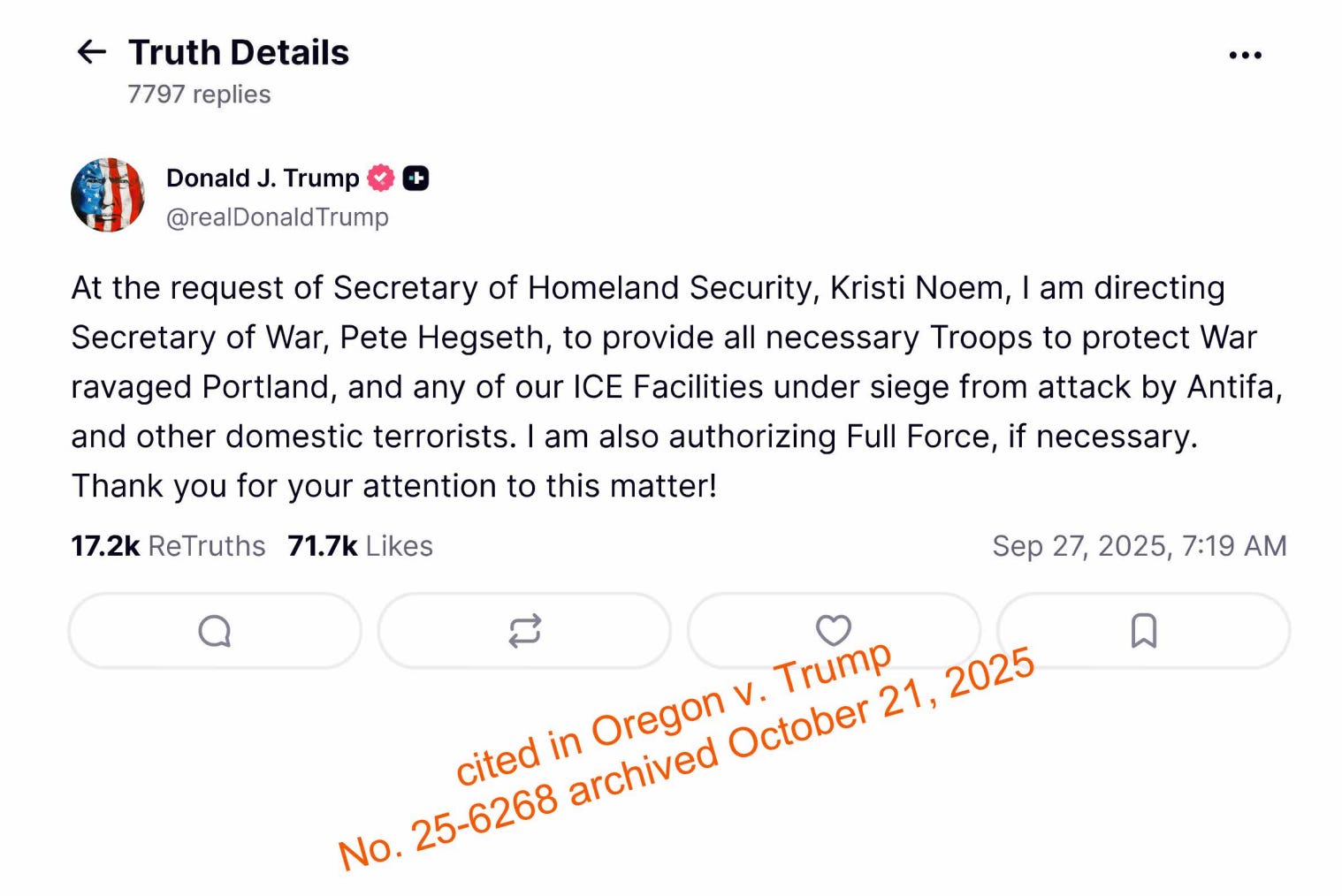October 27, 2025
Ninth Circuit to Decide on DOJ Misrepresentations in Oregon Federalization Case

If the Trump era has taught us anything, it is that falsehoods from the executive can pass with alarming frequency and little retribution. Now, the Ninth Circuit Court of Appeals is faced with a pivotal question: does it matter that the Department of Justice (DOJ) possibly misled the court to justify a federal action based on President Trump’s exaggerated claims of ANTIFA chaos in Portland, Oregon?
The controversy started when Homeland Security's Tricia McLaughlin falsely claimed on Fox News that ICE agents were under attack in Portland, using outdated footage to support her statements. This was part of a broader narrative by Trump to deploy National Guard troops to Democratic cities he deemed out of control.
The DOJ's shaky legal footing for this deployment was challenged, but not before a conservative-leaning panel of the Ninth Circuit endorsed the action, citing rioting in Los Angeles as justification for similar measures. This panel, including two Trump appointees, argued that the president had a "colorable" claim of necessity, a decision that set a concerning precedent for future executive actions.
The plot thickened as it was revealed that DOJ statements about the extent of federal deployment in Portland were inaccurate. An affidavit by Robert Cantu of the Federal Protective Services claimed a significant strain on resources due to violent protests, necessitating the deployment of 115 officers to the city. However, this was later shown to be a misrepresentation; the actual number of officers deployed at any given time was far lower, with only a rotation of personnel rather than a sustained increase.
The reliance on such false statements by the DOJ was central to the Ninth Circuit's earlier ruling, which Judge Susan Graber, a Clinton appointee, criticized for its acceptance of vague and misleading government assertions. Despite the DOJ’s admission of inaccuracies, another panel continued to back the president's emergency declaration.
This case underscores the broader issue of judicial deference to executive determinations, which, as shown here, can be based on factual inaccuracies. The Ninth Circuit's initial ruling, suggesting that the president's declarations are nearly unreviewable, invites a dangerous level of executive overreach, masked by legal justifications that may not hold up under scrutiny.
The full Ninth Circuit has now paused the order, with a review pending that could redefine the scope of executive power and judicial oversight. This decision will not only impact Portland but could set a significant precedent on how federal emergencies are declared and justified.
As the court contemplates its next steps, the integrity of judicial review and the checks on executive power hang in the balance. The outcome of this case could either reinforce the court's role in curbing executive misinformation or further entrench the presidency's unilateral authority to dictate reality, unchecked by factual accuracy.